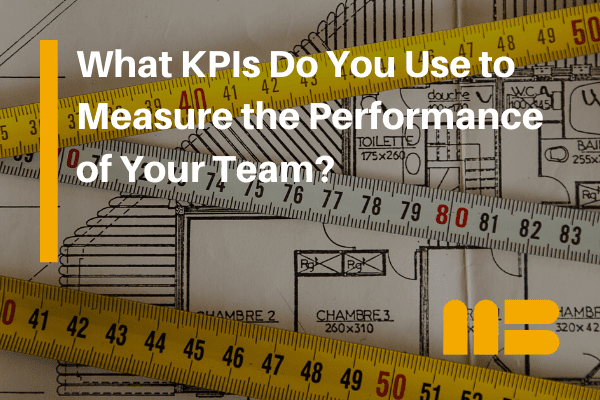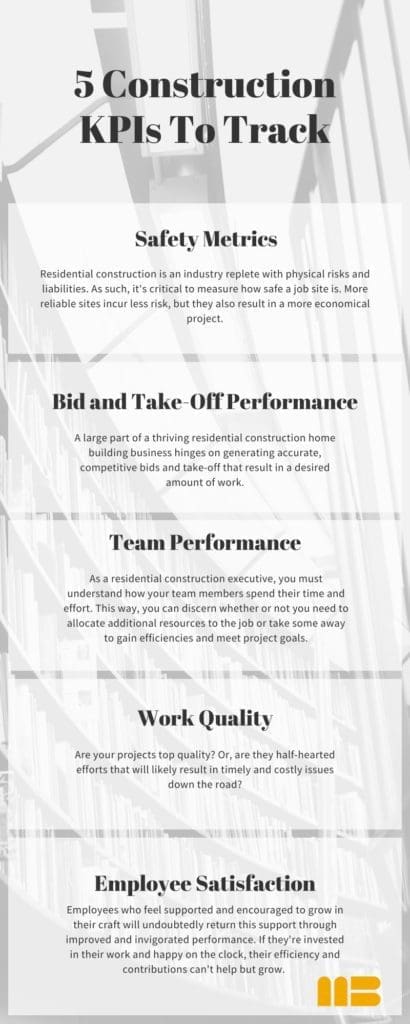In my experience, tracking the right financial metrics can seem like the most straightforward way to evaluate the success of a construction project. Was the project over or under budget? What was the profit margin on the latest deal or the ROI on that major investment?
While focusing primarily on financials is common, with 43% of construction firms prioritizing short-term financial objectives, I believe it’s essential to note that money isn’t the sole metric of a project’s success.
In my latest analysis, I highlight five vital performance indicators in construction management that any leader in the building industry should consider. It’s interesting to note that many prominent homebuilders and product leaders already employ reliable metrics. However, if you’re an executive, vice president of construction, project manager, or superintendent with local or regional builders, these KPIs can be a fantastic starting point for smarter tracking.
Five Construction KPIs You Can’t Afford to Miss
1. Ensuring Job Site Safety
When I look into the construction industry, I find that five of the top 25 riskiest jobs in the U.S. are construction-related.
Given the inherent risks in residential construction, gauging a site’s safety is paramount. Safe sites often mean reduced risk, leading to more cost-effective projects. I’ve noticed that accidents or safety breaches can derail project momentum, often leading to increased insurance premiums.
Key safety-centric KPIs I always keep an eye on include:
- Overall safety/incident rating
- Number of accidents per contractor
- Total safety meetings and communications
2. Bidding Mastery and Take-Off Excellence
Earning accurate and competitive bids is at the heart of a successful residential construction business.
I often question: Is my bidding process optimized, or are there areas to refine? It’s crucial to gauge the effectiveness of your purchasing and estimating teams in acquiring more projects and ensuring those efforts translate to desired results.
Bidding-specific KPIs I find invaluable include:
- Bids in progress
- Number of RFIs and RFQs submitted
- Business development meetings held and scheduled
- Active leads and their likelihood of success
- Errors and inaccuracies in bid documents
3. Elevating Team Productivity
I’ve always said, if you want to gauge a project’s effectiveness, delve into the details of your team’s performance.
Understanding how your team allocates their time and resources can offer insights into whether more resources are necessary or if there’s a need for reallocation to maximize efficiency.
Performance-specific KPIs I recommend analyzing are:
- Amount of waste (and recycling) per project
- Average project revenue per hour
- Employee and equipment downtime percentages
4. Prioritizing Work Quality
I often ponder over how to quantify quality in construction projects. No project manager wants to invest time in redoing tasks. As the adage goes, it’s always best to get it right the first time.
Quality-centric KPIs that I find essential include:
- Total project defects
- Workmanship-related defects and reversal time
- Inspection success rate and rework cost
- Customer satisfaction ratings
5. Keeping Employee Satisfaction Front and Center
Employee contentment and morale are paramount. In my experience, if employees feel nurtured and motivated, their work quality and commitment soar, often resulting in decreased employee turnover.
To ensure a nurturing work environment, the satisfaction-focused KPIs I always monitor include:
- Employee satisfaction and turnover rates
- Completion rates for employee training
Mastering These Construction Executive KPIs
There’s a myriad of ways to gauge genuine success. I’ve learned to adopt a comprehensive perspective when examining my projects, ensuring I consider aspects beyond just the financials.
By focusing on these KPIs, you’ll be well-equipped to make well-informed business decisions and bolster your reputation. I’d be thrilled to assist you in your journey. Contact me for a consultation, and let’s explore how we can optimize your team’s performance in each of these areas.
KPIs For Construction FAQs
As the construction landscape transforms and intensifies in competitiveness, it’s paramount for leaders to consistently monitor KPIs. This vigilance ensures informed decision-making and a pathway to success, regardless of whether you’re a project manager, contractor, or executive.
Quality-specific KPIs for construction include the number of total project defects, the number of workmanship-related defects, the time required to reverse defects, the ratio of the number of inspections passed to the total number of inquiries, and the total cost of all rework efforts, and customer satisfaction reports and ratings.
A KPI is a key performance indicator that measures certain aspects of the construction process and quality.
A Snapshot of Construction KPIs
For a concise reference guide, here’s an infographic detailing the construction KPIs highlighted above.




